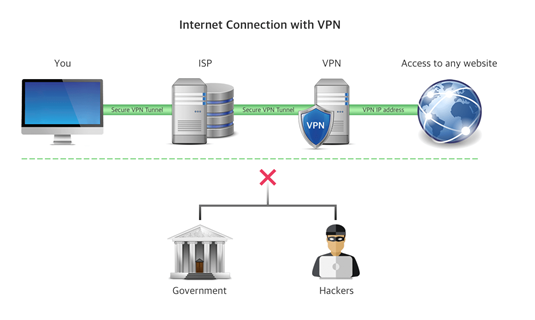Data Safety Challenges Of A Company
If you are working as an HR manager in a small company, you are likely to occasionally assume a few other roles less related to your qualifications. In particular, as the person chosen to carry face-to-face interaction with employees prior to their job commencement, you might be in the position to convey certain important messages and practices important for the normal functioning of the company.
One such practice has to do with online privacy. In particular, if your company lacks a dedicated cybersecurity specialist, you might be required to inform the employees that they need to respect certain online safety procedures when accessing sensitive online content in order to avoid being exposed themselves and exposing the company. Â The situations involved can range from accessing torrent platforms like the Pirate Bay, as described here, to typing sensitive personal details or business-related details using chat platforms.

The employee should be instructed to maximally refrain from unsafe activities or to ensure maximum prudency in the process. The company would not be physically able to scrutinize the entire traffic of each employee at any given moment. Nevertheless, online activity leaves footprints all over the Internet that can survive years and decades and be accessed by those that have an interest in them.
There are a number of vulnerabilities to the regular use of Internet. First of all, the ISP provider can see the list of websites accessed by its subscribers as well as the content and they can also accidentally leak such information. In addition, companies are often the targets of hackers, given that these are more resourceful and generally operate with more sensitive data (starting with primary information about potential customers and ending with financial information). The recent wave of ransomware attacks is a perfect demonstration of this simple truth. Combined with irresponsible online behavior of employees, all the vulnerabilities listed can backfire monumentally.

How VPNs Can Ensure Safety
VPNs come with several benefits that help to address the challenges listed:
- They create dedicated communication tunnels between the users and the Internet. All the traffic in these channels is encrypted, making it very hard for any third party (like the ISP or hackers) to intercept, decrypt, and make sense of the information;
- VPNs hide the physical IP address of the users and assign them the IP address of the VPN server through which the data traffic is routed. This effectively conceals the online identity of the users;
- Certain VPN providers do not keep logs of the activity of their users – if sensitive information is not stored, it cannot be stolen or hacked;
- By routing the data traffic through dedicated servers with advanced security tools, any attack on your company, rather than hitting you in the first place, would likely hit these servers and be deflected.
Thus, deploying VPNs throughout the company can allow the employees to surf the web safely but also comes with additional larger-scale security benefits.